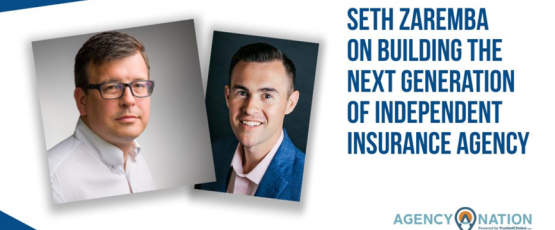
Many insurance agencies have narrowly held stock ownership. In most cases, the principal owns 100% of the stock and has no plans to transition the stock, and in many cases, no one to transition the stock to. In this scenario, there is an increased risk in the business and a corresponding decrease in agency value.
The risk increases for several reasons. When the agency principal owns most of the stock, they generally own all of the key relationships with insureds as well.
The principal is the face of the agency to their clients and if they were to exit the business, there is a high likelihood that the key clients will leave the business as well. A high attrition rate will lower the value.
When older principals own a preponderance of the stock and relationships, there is a high correlation that the age of the book of business will be old as well. There is elevated risk in an older book, as many of the clients will be transitioning out of their businesses in the same timeframe as the agency principal.
Agencies with narrowly held stock ownership generally do not reinvest in next generation talent and technology. Without shared ownership and an engaged next generation of agency leadership and production talent, organic growth is hard to achieve, and the resulting impact of low growth will decrease agency value as well.
A prospective acquirer would assign a lower value to this agency because the stability of the renewal commissions is at risk. In such a deal, the acquirer would likely insist on a lengthy earn-out period in the deal structure. The earn-out period would entail that the outgoing principal remain involved in the agency for several years to transition the book of business to the new owners and insure a pre-set account retention rate. They would be incentivized to hit key retention milestones to earn-out a large portion of their deal.
Broadly Held Stock Ownership and the Impact on Agency Value
An agency that has broadly held stock ownership has less risk and therefore increased value to a potential acquirer for several reasons.
When agency stock is broadly held, we normally see that the key relationships with insureds are also often broadly held. Additionally, high-performing agencies will often have several employees manage each key relationship, so that if one employee leaves there is less risk of losing the account. A general rule of thumb is that no one employee should manage more than 20% of the agency book of business.
When agencies offer the opportunity to own stock to their next generation employees, these employees see the potential fruits of their labor and are compelled to drive agency growth. By driving organic growth year after year, these agencies increase their profitability and value. Another benefit of the organic growth mindset is that it will lower the age of the book of business and lower the risk of attrition.
Having a vested interest in the agency will change the mindset of employees from having a “job” to having a career. Employees with a stake in the business will make decisions from an ownership versus an employee perspective. These agencies are always looking to hire next generation talent that will help drive the business and to set in place employees that will buy them out at the end of their careers.
A prospective acquirer would assign a higher value to these agencies because there is lower risk to the book of business and the renewal commissions. In such a deal, the acquirer would likely pay a higher multiple and would be more flexible on the earn-out period in the deal structure.
Agency stock ownership is a key driver of agency value. Narrowly held agencies generally have higher risk and lower overall value. Broadly held agencies set in place the forces to drive agency growth and profitability, while decreasing the risk and increasing agency value.
Want to know more about how to structure your stock ownership?
Contact Craig Niess at (800) 555-1742 or visit our Business Consulting Services page!






